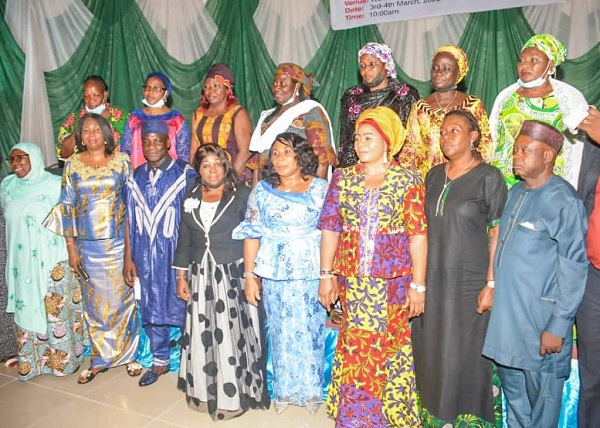
The Federal Ministry of Agriculture and Rural Development (FMARD) has empowered the north-central smallholder women farmers champions to mitigate climate change and improve agricultural productivity.
Speaking at the workshop on ‘Mainstreaming Gender into Climate Change Mitigation and Adaptation Strategies for Women Farmers in the North Central Zone’ in Abuja, the ministry’s permanent secretary, Dr. Ernest Umakhihe, said the training sessions are expected to enhance agricultural productivity and food sustainability in all seasons.
Represented by the director, reforms coordination, Mrs. Gertrude Orji, Umakhihe said Nigeria’s agriculture is most vulnerable and susceptible to the impacts of climate change.
“Indeed, it is rain-fed dependent. Any change in the weather pattern, in terms of the amount, intensity, duration and the on-set affect farmers’ decisions on when [to plant], what [to plant] and where [to plant] the crops and inputs as well as other cultural operations in the value chain. Climate change and variability affect women particularly, who constitute the most vulnerable among the farming community.
“Women constitute about 80 per cent of the labour force involved in agricultural production and grow up to 80 per cent of the food in Nigeria. Overall, they constitute about 43 per cent of the agricultural labour force in developing countries.
“Climate change mitigation means avoiding and reducing the emission of heat-trapping greenhouse gases into the atmosphere to prevent the planet from warming to more extreme temperatures. Climate change adaptation refers to altering our behaviour systems and, in some cases, protecting our families, economies and the environment in which we live from the impacts of climate change,” he stated.
He pointed out that over the last decade, nearly 4 billion people suffered climate-related disasters. “We must, therefore, work hard to protect vulnerable communities from extinction and prevent dangers of climate change.”
Umakhihe pledged that the ministry will continue to work on interventions geared towards empowering women farmers, youth and achieving food security and creating jobs.
He tasked the participants at the workshop to utilise the knowledge they will acquire, as it will expose them to climate change adaptation and mitigation strategies as well as improve agricultural productivity.
In her welcome address, the ministry’s director of special duties, Mrs. Fausat Lawal represented by the deputy director, special duties, Mrs. Gloria lnyangabasi said that climate change triggers floods, droughts, rise in sea levels, affects our ecosystems, source of livelihood, health, economy and cultural practices, especially in agriculture.
She urged the participants to ensure that they step down the training in their various domains to achieve a sustainable environment for agricultural activities across the country.
The head, gender unit in the ministry, Mrs. Ifeoma Anyanwu, in her remarks, said that the thrust of the National Gender Policy is to reduce the vulnerability of women in agriculture, especially in their access to inputs, feeds, finance and information so that they can contribute meaningfully to agriculture.
The over 200 small-holder women farmers from Benue, Kogi, Kwara, Plateau, Kaduna, Nasarawa, Niger and FCT, representing the north-central geopolitical zone were given clean stoves starter packs.


